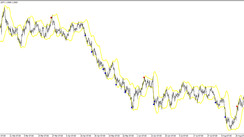Forex trading is often feared because of how difficult it is, but the biggest deterrent against entering the industry is how easy it seems to lose money. Just a quick search on your favorite engine can deliver thousands of results from hundreds of thousands of people complaining about scams, frauds, and bankrupted brokers which left them with none of their initial investment.
However, there are many ways to take when it comes to your money’s well being. Regulatory bodies play a huge part in Forex trading and the safety of each investor, and one of the ways they ensure this is with investor compensation schemes.
Since it is of your best interest to keep your investment secure, you are about to learn all you need about them.
1. What Is An Investor Compensation Scheme?
An investor compensation scheme is a protective measure that some Forex regulators require before granting a license to a brokerage company.
In essence, a compensation scheme is a series of steps and methods to compensate a broker’s clients if the broker finds itself in a situation where it is not able to pay its traders what it is owed to them.
In other words, if the broker collapses - or is likely to do so - an investor compensation scheme ensures that its clients are guaranteed to get their money (or most of it) back.
2. How Do Investor Compensation Schemes Work?
While the basic concept is the same, different entities use different approaches.
a) FCA and FSCS
The main UK regulator uses the FSCS to ensure investor compensation. All rules for the Financial Services Compensation Scheme are dictated by the FCA, and it covers from insurance to investments and mortgages.
The FCA is tasked with authorizing firms funding the FSCS, and this fund is used to refund savings in case of a firm’s insolvency.
It has paid out over £26 billion since its creation in 2001.
b) ASIC
The ASIC constantly works to keep an eye on all brokers under its licenses. Among its investor compensation measures, we have that they require all Forex brokers to hold a minimum of $1 million for operating capital only.
In addition, all clients’ funds must be kept in segregated accounts with top-tier banks in Australia, to ensure that no customer funds can be used in the interests of the broker.
c) CySec
The ICF is the compensation fund in Cyprus, and traders must be non-professional investors-clients and be registered as persons (natural or legal). Cypriots and foreigners can apply, as well as Cypriots and residents living away.
However, those involved with criminal offenses over their operations (or convicted for such) cannot ask for compensation.
d) GFSC
Gibraltar compensations can be delivered to retail, private, or ordinary investors, yet it does not offer protection for professional or institutional clients.
The scheme itself covers whatever money is owed to the customer, including investments and assets held for them by the licensed firm.
Eligible investors are entitled to a 90% refund of a client’s investment.





